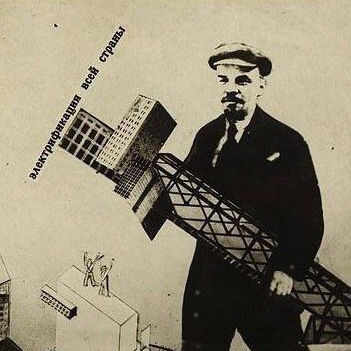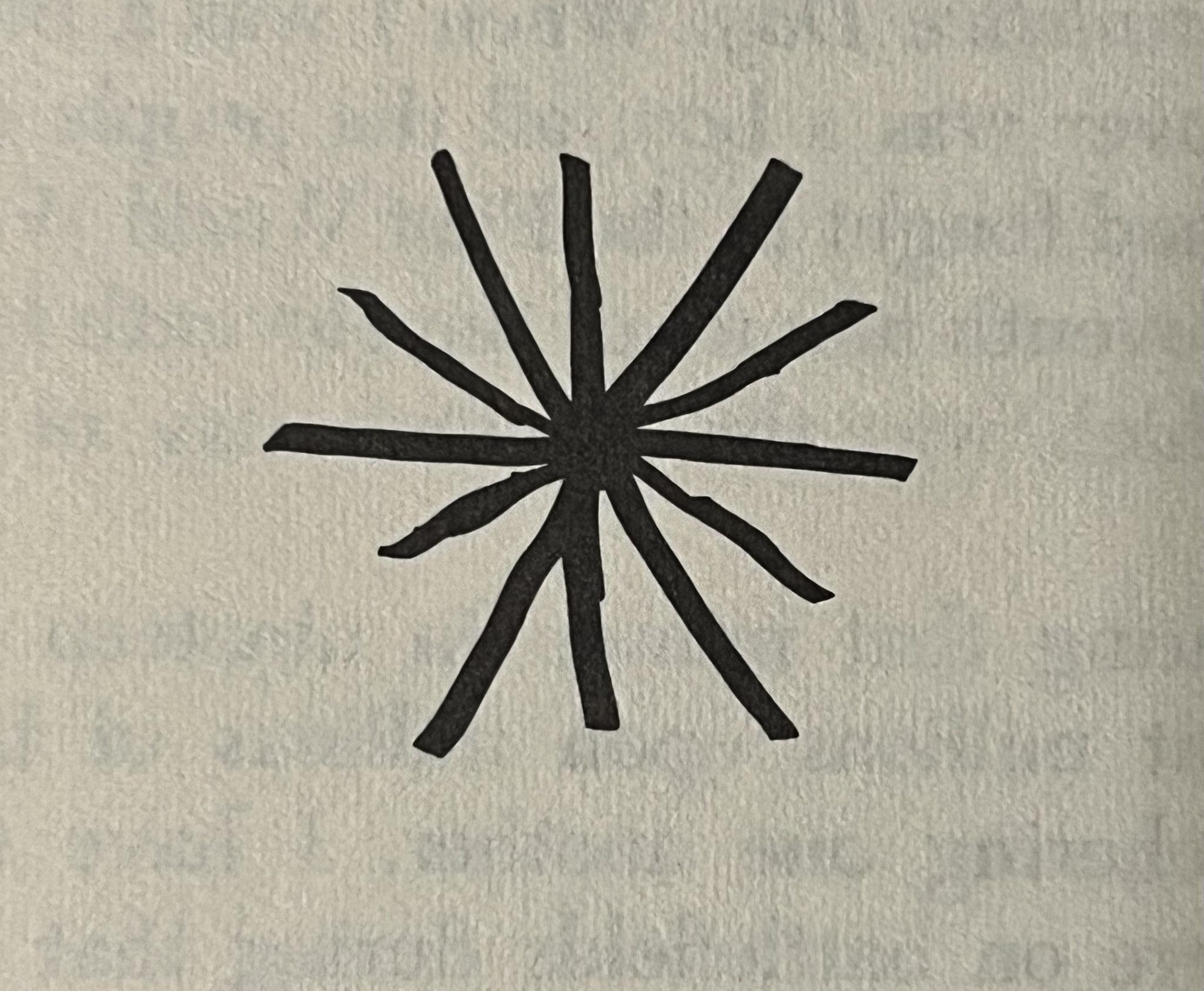Very proud of us all who have kept it going. We've gotten into a nice groove now. We looked at the labour theory of value, and how all commodities are commensurable by measuring the labour time. We saw that money is a commodity (gold) used to measure value. We learned that surplus value isn't generated by trade, because that would cancel out over the economy. We saw that surplus value comes from the variation between the value of the food etc. required to MAKE a day's labour, and the value of the work done in that day. We have learned the general formula of capital, and how capital differs from money. Not only am I proud of you, Stalin would be proud of you.
Let's use this shared activity as an excuse to also build camaraderie by thinking out loud in the comments.
The overall plan is to read Volumes 1, 2, and 3 in one year. (Volume IV, often published under the title Theories of Surplus Value, will not be included in this particular reading club, but comrades are encouraged to do other solo and collaborative reading.) This bookclub will repeat yearly. The three volumes in a year works out to about 6½ pages a day for a year, 46⅔ pages a week.
I'll post the readings at the start of each week and @mention anybody interested. Let me know if you want to be added or removed.
Just joining us? It'll take you about 8½ or 9 hours to catch up to where the group is.
Archives: Week 1 – Week 2 – Week 3 – Week 4
Week 5, Jan 29-Feb 4, we are reading Volume 1, Chapter 9, and from Chapter 10 we are reading section 1 'The Limits of the Working Day', PLUS section 2 'The Greed for Surplus-Labour', PLUS section 3 'Branches of English Industry without Legal Limits to Exploitation'
In other words, aim to get to the heading '4. Day Work and Night Work. The Shift System' by Sunday
Discuss the week's reading in the comments.
Use any translation/edition you like. Marxists.org has the Moore and Aveling translation in various file formats including epub and PDF: https://www.marxists.org/archive/marx/works/1867-c1/
Ben Fowkes translation, PDF: http://libgen.is/book/index.php?md5=9C4A100BD61BB2DB9BE26773E4DBC5D
AernaLingus says: I noticed that the linked copy of the Fowkes translation doesn't have bookmarks, so I took the liberty of adding them myself. You can either download my version with the bookmarks added, or if you're a bit paranoid (can't blame ya) and don't mind some light command line work you can use the same simple script that I did with my formatted plaintext bookmarks to take the PDF from libgen and add the bookmarks yourself.
Resources
(These are not expected reading, these are here to help you if you so choose)
-
Harvey's guide to reading it: https://www.davidharvey.org/media/Intro_A_Companion_to_Marxs_Capital.pdf
-
A University of Warwick guide to reading it: https://warwick.ac.uk/fac/arts/english/currentstudents/postgraduate/masters/modules/worldlitworldsystems/hotr.marxs_capital.untilp72.pdf
-
Reading Capital with Comrades: A Liberation School podcast series - https://www.liberationschool.org/reading-capital-with-comrades-podcast/
@invalidusernamelol@hexbear.net @Othello@hexbear.net @Pluto@hexbear.net @Lerios@hexbear.net @ComradeRat@hexbear.net @heartheartbreak@hexbear.net @Hohsia@hexbear.net @Kolibri@hexbear.net @star_wraith@hexbear.net @commiewithoutorgans@hexbear.net @Snackuleata@hexbear.net @TovarishTomato@hexbear.net @Erika3sis@hexbear.net @quarrk@hexbear.net @Parsani@hexbear.net @oscardejarjayes@hexbear.net @Beaver@hexbear.net @NoLeftLeftWhereILive@hexbear.net @LaBellaLotta@hexbear.net @professionalduster@hexbear.net @GaveUp@hexbear.net @Dirt_Owl@hexbear.net @Sasuke@hexbear.net @wheresmysurplusvalue@hexbear.net @seeking_perhaps@hexbear.net @boiledfrog@hexbear.net @gaust@hexbear.net @Wertheimer@hexbear.net @666PeaceKeepaGirl@hexbear.net @BountifulEggnog@hexbear.net @PerryBot4000@hexbear.net @PaulSmackage@hexbear.net @420blazeit69@hexbear.net @hexaflexagonbear@hexbear.net @glingorfel@hexbear.net @Palacegalleryratio@hexbear.net @ImOnADiet@lemmygrad.ml @RedWizard@lemmygrad.ml @joaomarrom@hexbear.net @HeavenAndEarth@hexbear.net @impartial_fanboy@hexbear.net @bubbalu@hexbear.net @equinox@hexbear.net @SummerIsTooWarm@hexbear.net @Awoo@hexbear.net @DamarcusArt@lemmygrad.ml @SeventyTwoTrillion@hexbear.net @YearOfTheCommieDesktop@hexbear.net @asnailchosenatrandom@hexbear.net @Stpetergriffonsberg@hexbear.net @Melonius@hexbear.net @Jobasha@hexbear.net @ape@hexbear.net @Maoo@hexbear.net @Professional_Lurker@hexbear.net @featured@hexbear.net @IceWallowCum@hexbear.net @Doubledee@hexbear.net @Bioho@hexbear.net @SteamedHamberder@hexbear.net @Meh@hexbear.net
Getting started on chapter four now

But I should have more time this week to fully catch up
Uhg I'm so far behind lol. Kids + work = no time to learn where a coat gets its value from.
Actually, I got though C1S1 today. Going to pick up more on my lunchs at work.
I just started the first chapter after making my way through the start of the Penguin edition.

Seriously, reading 6 other books while reading Das Kapital was... not a good decision and I'm a slow reader to boot.
I relate to that, I was like reading a bunch of other books to, but in the end I kind of just dropped them all and I'm just primarily reading Das Kapital now. and even then it still takes me a while to read
Yeah, but I'm finishing all my other books now so I should be good. The rest of Das Kapital, here I go...
Yeah agreed here, I put all other reading on hold or else I'll never catch up
Time for the factory report excerpts

We stan Leonard Horner, the "factory inspector and tireless censor of the manufacturers"(538)

Ok, WHY, if profit comes from exploiting labour-power, would capitalists improve technology?
If less work produces the goods, then there is less profit, surely? And profit is highest when variable capital is highest?
That's my question.
The explanation I can think of so far: if a more efficient book-printing machine is created somewhere, by someone, then the socially-necessary labour-time to make a book falls across the world. A boss can continue to run his print-shop in a labour-intensive way without the machine, but the value of his books at market has fallen, because although his ones still use a lot of labour, the socially-necessary labour has fallen.
While labour-intensive production might be more profitable for the bourgeois class as a whole, individual capitalists don't really have a choice in the matter: they have to use the most efficient process available to compete. Is that the Marxist explanation?
Yep pretty much.
Also the first capitalist to find a lower-cost way to produce, like with automation, gets a disproportionate share of profits at first and can even use it as an opportunity to gain overall marketshare, thus increasing their bulk of profit even if per-unit profit has decreased. For example, if they sell a table for 25% less due to cutting labor costs by 30% but sell 50% more of them, their total mass of profit has increased (albeit temporarily unless they have a monopoly).
While labour-intensive production might be more profitable for the bourgeois class as a whole, individual capitalists don't really have a choice in the matter: they have to use the most efficient process available to compete. Is that the Marxist explanation?
Yes. The bourgeoisie may be a class with a common interest as capitalists but that does not mean there is not struggle within the bourgeoisie. An individual firm that wants to survive, let alone surpass the social average, must keep up with the state of the art, or perish.
In those industries which have absolute monopoly due to legal mandate, you do see a plateau in technological development; everyone knows this from experience.
Even without competition there is still the possibility to increase profits by improving technology, thereby reducing unit value, while enjoying a static market price due to legal mandate or artificially limiting supply.
the possibility to increase profits by improving technology
Why would improving technology increase profit, based on the theories we're reading in Capital? Woulldn't increasing technology (decreasing labour) decrease profit/Mehrwert?
After typing the other reply I might not have answered the question directly.
An individual producer receives relative surplus value by reducing their personal labor costs relative to the market. This lasts as long as the industry has not caught up to the new technique. Eventually it does, and it's a race to the bottom as individual producers compete against each other.
Only relatively. Human labor power is variable and so different from other forces of nature, yet there are also various forms of labor. By cutting down the production time of a commodity (through technology), you can expand the amount of labor expended in the time allotted, and so increase surplus value inasmuch as the workers movement can be suppressed and wages kept static/rise at a lower rate than the unpaid labor expended rises.
The proportion of labor which is unpaid increases.
Human labor power is variable and so different from other forces of nature, yet there are also various forms of labor.... you can expand the amount of labor expended in the time allotted
No. This doesn't sound like what Marx is saying at all, no.
I'm not sure I understand you.
Surely you're not saying that machines perform labour that adds value in the Marxist theory?
Can you explain what you're saying? Coz it sounds like you're saying machines do labour.
it sounds like you're saying machines do labour.
Under the orthodox Marxist conception, machines are created by labor, which means that they themselves embody a certain about of "stored up" labor. Let's say the machine costs $1,000 and can be used to produce 1000 things. Under Marx's conception, the machine imbues $1 of value in each of the individual things it produces. Variable capital (labor) also adds value to the thing, so it costs more than $1, but $1 of its price comes from the machine. But you are right - the machine does not do labor. It stores labor, which is then released when the machine is used to make commodities. Marx repeats this a lot in Volume II and III, so it's kind of easy to miss it in Volume I.
Machines do fixed “labor” (where there is no struggle/surplus), while human labor power is variable/open to struggle (this is where value/surplus comes from). Machines always require an input at the very least, and so are simply tools of production, both to ease the labor process (to wear workers down more slowly) and allow workers to create commodities at a faster pace. Machines are used to streamline production, and increase surplus labor exploitation by allowing workers to create more commodities in a lower amount of time. Contradictions only arise with machines in capitalist society, where exchange value and not use value predominates, and so machines lead to a decrease in profit (negative effect) when they sideline human labor power, since this is the only place where profit can come about in the long term. This is part of the fall of the rate of profit, but from the immediate perspective capitalists only see an increase in efficiency/profit.
I suppose the sticking point might be about the level of abstraction or how "zoomed in" the analysis is. There is no abstract capitalist roaming the earth acting in its own best interest, nor is there an abstract laborer. The law of value operates through "blindly operating averages" and the classes are individuals who share a common material interest, regardless of their personal consciousness of their class.
The law of value works as a social average, in the same way that temperature is a measure of average kinetic energy, although individual particles may have a higher or lower energy than the average.
Value is dependent on the degree of technological development in society. Price is grounded in value in the aggregate, but they do not correspond for individual commodities. But price does tend toward value, i.e. to the minimum of labor necessary, precisely because competition between individual producers opens the possibility of one producer undercutting the market for relative surplus value. There is an explicit quote by Marx about competition being the basis of the law of value, i.e. prices tending toward labor costs. I can't find it right now but I can look later if curious.
Your question is 100% valid and it strikes at the heart of the matter. Capitalists seek surplus value in whatever way they can find it. In certain economic conditions such as tense competition or strong labor, the capitalist might find they can only extract surplus value by producing commodities with less than socially average labor time by advancing technology. This is relative surplus value since the surplus value is relative to the rest of the book producers. But capitalists don't necessarily do this if absolute surplus value can be extracted. (Analysis of imperialism can be expanded here.)
While labour-intensive production might be more profitable for the bourgeois class as a whole, individual capitalists don't really have a choice in the matter: they have to use the most efficient process available to compete.
Yes, and this is part of a general contradiction that capitalism constantly reduces socially necessary labor to an absolute minimum, which at the same time disintegrates the basis of capitalism. (By basis I mean the extraction of surplus labor, the labor cannot be extracted if there is not a necessary labor to speak of.) Pre-empting some later parts of the book and also Volume 3.
This is one of the contradictions that becomes an issue later. Profit is highest when variable capital is highest, but you are not producing nearly as much. The speed at which you produce also affects profit. You then enter an overproduction crisis, when you have less people paid well enough to consume, but capitalists have an overabundance of products, they can no longer sell.
This is the subject of Part Four: The Production of Relative Surplus Value.
But to jump ahead, imagine a global village where 10 capitalists all produce yarn (buying labour power and means of production in market etc). We will hold the length of the working day steady (as this is the end result of chapter 10).
Each capitalist produces 10 yarn in a day, each bearing 1 unit of value, and hence each capitalist, after selling their yarn, has 10 units of value. The working day cannot be increased, so other methods of increasing the portion of the working day devoted to the production of surplus value must be found.
Suddenly one of the capitalists finds a way to increase the productivity of his spinner, whether by some new machine or by some new organizational method. This capitalist can now produce twice as much yarn in a day per unit of labour power. Hence, he produces 20 yarn a day with the same amount of variable capital. If this new method of production were adopted generally, socially necessary labour time to produce yarn would fall by half, each yarn bearing half as much value. Consequently, if this new method of production were adopted generally, this capitalist would find no new profit, as you say.
But the other 9 capitalists are still using the old production methods, because of patents, lack of funds, etc. Hence, the socially average labour time to produce the yarn hasn't fallen by half; it has fallen by 5% (unless my math is wrong; regardless the socially average labour time falls slower for society than for the capitalist using new production methods).
Each of the other 9 capitalists continue producing as they had before, but now their day's product of 10 yarn bears only 9.5 units of value, in spite of their workers continuing to work for as long as they had before. They begin to see a deficit. In contrast, the capitalist using new productive methods has produced 20 yarn bearing 19 units of value.
CC is a multiplier for capitalist, if your shit machine makes 10 coats per worker and new shiny machine makes 12 coats per worker, your eyes lit up and you want new machine. You pay your workers the same and get more coats.
But uh huh new shine machine slowly propagates through the economy, and the amount of coats needed remains largely the same ( you ahve not changed worker compensation for them to buy more coats). Now you've done fucked up, and you fire some workers until new equilibrium is found.
if profit comes from exploiting labour-power, would capitalists improve technology?
Improved Tech makes the labor produce more value. If they exploit the same amount of labor and the labor makes more value they make more profits. If a new tech costs more to implement than the increased value of the labor it will not be implemented.
then the socially-necessary labour-time to make a book falls across the world.
The word "necessary" is really important here. It isn't "average" labor time.
If a factory with the tech doodad can make twice the books with the same labor and materials they will buy enough doodads to make all the books and lower the price of a book so the old style factories will be unable to make any profit and will thus close. Once the old style is gone they can slowly increase prices again until some new doodad is invented. All the book makers are trying to invent the next do dad so they can put competitors under and avoid going under themselves.
Improved Tech makes the labor produce more value. If they exploit the same amount of labor and the labor makes more value they make more profits
This doesn't fit what we've been reading. "Improved Tech makes the labor produce more value": Marx would say improved tech makes the labour pass along more value (the value of the fixed capital), but more fixed capital doesn't increase the amount of value added by labour. That would contradict everything we've read.
Sorry I said that sloppily.
Improved Tech makes the labor produce more exchange value in less time.
The use-value of the product stays the same but the amount of necessary-labor goes down. The lag time between the lowering of the tech-lowered-labor-time and the lowering of the exchange value gives the capitalist a higher rate of return than competitors without tech temporarily. (longer if they can patent the tech) In that period where they have advantage they can act to put their competitors out of business and expand their market share.
The bigger share of the market is their motivation.
If capitalism without patent law existed it would lead to a stagnation. Any technology that took longer to invent than it did for others to steal and implement would never be invented because there would be no increase in profits to offset R&D.
In chapter 7 or 8(?) around where Marx talks about how the value of means of production are transferred to the product of labor. So this implies that the final value of the product doesn't depend on whether the product was made in a single multi-step production process, or whether each phase of production was punctuated with sales on the market.
For example, two firms making socks:
- Vertically integrated production, e.g. INPUTS: cotton + spindle -> turn into yarn -> knit into OUTPUT: socks
- Rely on the division of labor, INPUT: ready-made yarn, knit into OUTPUT: socks
The effect of this is that firm #2 might out compete firm #1 because they can produce socks with less socially necessary labor, if they can find another firm which can produce ready-made yarn en masse for cheaper.
My question: What conditions would lead to a reversal of the situation, where a single firm integrates multiple verticals into a single production process? Is Walmart an example of this, with how Walmart makes contracts directly with farmers etc?
Maybe the level of integration or division of labor is related to the level of automation. For example, if advanced machine technology can produce an incredible amount of yarn very quickly, then there is a mismatch of how much yarn as use-value is necessary as inputs as socks. So the firm is left with a huge excess of yarn. This could still be a vertically integrated firm, but then they would have a side business of selling ready-made yarn.
Another tendency towards increased division of labor - the effect of imperialism and social division of labor across country boundaries. If yarn can be purchased for cheaper from a country with low cost of labor power, then firm #2 can import this cheaper yarn to produce socks with less labor than production occurring entirely in the same country.
Another tendency towards increased division of labor - the effect of imperialism and social division of labor across country boundaries. If yarn can be purchased for cheaper from a country with low cost of labor power, then firm #2 can import this cheaper yarn to produce socks with less labor than production occurring entirely in the same country.
This is the general idea of The Wealth of Nations: some countries can do things more efficiently than others, so instead of trying to preserve your national industries (Mercantilism), you should allow other countries to do what they're good at, buy from them, focus on what your country is good at and export that/ So it's an inter-national division instead of the social division of labour we're looking at in the text.
I'm aware I didn't answer your question lol, I don't know the answer.
Makes sense, I haven't read any of the classical economists directly. (Someday I will, maybe..) So Smith takes a positive look on the international division of labor. This also tracks with the Communist Manifesto when M&E talk about the world market.
I suppose there can be efficiencies in terms of shipping, less time of capital sitting on the market, etc which could make it worth it to bring different phases of production in-house.
A shortage in raw materials, or a supply chain issue with yarn would end up hurting the “nimbler” firm, right?
Wouldn't a shortage in raw materials hurt both firms? Good point on the yarn shortage, I could see a firm just going "I'll do it myself" if they can't find yarn on the market
What errors in reasoning does Karl Marx make in 'Das Kapital'? What are the flaws in his argumentation?
Critiques of Karl Marx's "Das Kapital" vary widely, and opinions vary as to what specific errors in reasoning or flaws in argumentation are present. However, some common criticisms include the following:
Labor Theory of Value: One of the central pillars of Marx's analysis is the labor theory of value, which argues that the value of a commodity is determined by the amount of socially necessary labor time required to produce it. Critics argue that this theory is flawed because it does not take into account other factors that contribute to a commodity's value, such as scarcity, utility, or subjective preferences.
Historical Materialism: Marx's theory of historical materialism suggests that social and economic development follows a predetermined pattern of class struggle, culminating in communism. Critics argue that this deterministic approach oversimplifies complex historical processes and ignores other factors, such as ideology, culture, and individual agency.
Dialectical Materialism: Marx's dialectical materialism framework argues that societal change occurs through the conflict between opposing forces (thesis vs. antithesis), resulting in a synthesis that advances society. Critics argue that this framework is overly simplistic and fails to consider the multifaceted nature of social change.
Centralized Planning: Marx's vision for a communist society involves a centralized planning system to organize economic activities. Critics argue that such a system is prone to inefficiencies, lacks the incentives for innovation and productivity, and can potentially become authoritarian.
Alienation and Exploitation: Marx contends that capitalism inevitably alienates workers from their labor and leads to exploitation by the bourgeoisie. Critics argue that this analysis overlooks the potential benefits and self-fulfillment that can arise from work and fails to account for the improvements in working conditions, living standards, and worker rights that have been achieved within capitalist systems.
It is important to note that these are not universally accepted criticisms, and scholars have engaged in extensive debates over the validity and relevance of Marx's ideas throughout history.
Tfw all the criticisms of Marx written after Marx's death were deconstructed and debunked by Marx in his book but no one reads it

Labor Theory of Value
Critics substituting their own idealistic conceptions of value. Marx is really clear about how his theory of value differs from all prior theories: the recognition of the dual character of commodities as both use-value and value
Historical Materialism
is no more deterministic than Darwinian evolution is deterministic. The constellation of different life forms proves that evolution is not deterministic, however you can still understand a lot through the recognition of the material constraint imposed on life, namely survival in a given environment. Analyzing biological evolution from the abstract perspective of survival and statistics is not an oversimplification; it correctly identifies the essential law governing evolution regardless of the particular form it takes, e.g., the particular species being considered.
In the same way that Darwin's theory does not predict future evolution of species, neither does Marx's theory predict future evolution of society. It is a way to understand past developments and how to influence future developments, but it does not reduce to a mere formula or procedure.
When Marx says that communism is inevitable, it is so, given that capitalism develops according to its own intrinsic laws and contradictions. It is trivially true that an asteroid or a zombie apocalypse could send us back to the stone age to halt this process.
Capitalism is the final form of class society because in capitalism all personal, direct forms of exploitation have fully detached into the impersonal, abstract form of capital. There can be no revolution against a class of individual persons because individuals only represent the underlying economic relation of capital. This is why Marx and Engels thought that anti-capitalist revolution must necessarily oppose itself to exploitation as such.
Dialectical Materialism
Not much to say on this except that most critics (and many Marxists) have a shit understanding of dialectical materialism.
Centralized Planning
Critics not understanding that the only difference in central planning, as regarding capitalism and communism, is that the former does not recognize production to be social while the latter does. The moment a division of labor occurs in society, production is social. The question is whether property relations keep up.
Capitalism, through its tendency to centralize capital into an ever shrinking number of firms, by itself centralizes planning. This is one of the most revolutionary points of Capital: that this tendency of centralization lays the groundwork for a communist revolution, since the transition becomes more obvious and easy when only a handful of large conglomerates would need to be seized. The transition would be almost purely formal, a matter of changing ownership, rather than requiring any change to the material conditions of production.
"Mankind thus inevitably sets itself only such tasks as it is able to solve, since closer examination will always show that the problem itself arises only when the material conditions for its solution are already present or at least in the course of formation."
Alienation and Exploitation
Critics arguing that "ackshually the workers like it!1!" isn't real criticism, just apologia.
Excellent place to leave off this week, just beginning to peak inside the realm of production as Marx kicks down the door and we see all manner of manmade horrors

(Well, marx reads the reports of the guys who are legally empowered to kick down the doors anyway)
You're not kidding. There was a brief section on lucifer matches, a story which was only just unfolding at the time of writing. Looked it up and it's pretty horrifying. https://medium.com/study-of-history/a-short-history-c52a80c69d5e
I’m really liking the take-down of “The last hour” as being the generator of profit.
It felt like rebutting some argument that was hot in 1837 but I haven't heard of since then (I'm a vampire btw)
i've been too busy these last weeks to participate in the book club threads, but next week i'm ready to go (and im still ahead with my reading!)
also, big thanks again to everyone here who've taken their time to answer questions and explain concepts, terms etc. it's been super helpful!
sending love to all my comrades

https://youtube.com/playlist?list=PLlpc6eFEd8osVlCfKCrP6H2F9NJDPCcEq&feature=shared
Some people might find this useful
I saw this while reading Ch.9.
The essential difference between the various economic forms of society, between, for instance, a society based on slave-labour, and one based on wage-labour, lies only in the mode in which this surplus-labour is in each case extracted from the actual producer, the labourer
and it reminded me of this from near the end of Ch.1
spoiler
Let us now picture to ourselves, by way of change, a community of free individuals, carrying on their work with the means of production in common, in which the labour power of all the different individuals is consciously applied as the combined labour power of the community. All the characteristics of Robinson’s labour are here repeated, but with this difference, that they are social, instead of individual. Everything produced by him was exclusively the result of his own personal labour, and therefore simply an object of use for himself. The total product of our community is a social product. One portion serves as fresh means of production and remains social. But another portion is consumed by the members as means of subsistence. A distribution of this portion amongst them is consequently necessary. The mode of this distribution will vary with the productive organisation of the community, and the degree of historical development attained by the producers. We will assume, but merely for the sake of a parallel with the production of commodities, that the share of each individual producer in the means of subsistence is determined by his labour time. Labour time would, in that case, play a double part. Its apportionment in accordance with a definite social plan maintains the proper proportion between the different kinds of work to be done and the various wants of the community. On the other hand, it also serves as a measure of the portion of the common labour borne by each individual, and of his share in the part of the total product destined for individual consumption. The social relations of the individual producers, with regard both to their labour and to its products, are in this case perfectly simple and intelligible, and that with regard not only to production but also to distribution.
but in which just like, it seems like that surplus labour in like a socialist mode, would like go back to the community and follow that centrally planned economy? Along with like being extracted differently, which wouldn't be exploitive but like someone working to contribute to their community, or like what Marx said here
Its apportionment in accordance with a definite social plan maintains the proper proportion between the different kinds of work to be done and the various wants of the community
Yes, in a transitional socialist mode (Lenin's lower stage of communism) we would likely still produce for exchange, but more equitably such that you only get out of it what you put into it in terms of labor. Marx saw this as an improvement but still limited by the "narrow horizon of bourgeois right", namely, the bourgeois insistence that people only receive what they "deserve" instead of just producing what people need without qualification.
A communist society would not concern itself with what people deserve. It would focus on satisfying all need.
A communist society would not simply be a fairer production of commodities. It would abolish the commodity altogether, because private property would be abolished (and there cannot be exchange without private property). It is not about using taxes to make things more equitable, because that is far too vague; it is not, in practice, possible to tax the problem away.
Marx wrote on exactly this topic in his Critique of the Gotha Program1, one of the last works he produced in his lifetime, so ostensibly it comes from his most mature theoretical standpoint. This was a critique of a political platform for a socialist party that ultimately never came to fruition.
1 Start from here (ctrl+F): "The emancipation of labor demands the promotion of the instruments of labor to the common property of society and the co-operative regulation of the total labor, with a fair distribution of the proceeds of labor."
Thanks, and thanks for pointing towards Marx's Critique of the Gotha program. I had a question about that, If it's okay? Mainly just to see if I'm understanding right? In like the general/broad sense.
spoiler
What we have to deal with here is a communist society, not as it has developed on its own foundations, but, on the contrary, just as it emerges from capitalist society; which is thus in every respect, economically, morally, and intellectually, still stamped with the birthmarks of the old society from whose womb it emerges. Accordingly, the individual producer receives back from society – after the deductions have been made – exactly what he gives to it. What he has given to it is his individual quantum of labor. For example, the social working day consists of the sum of the individual hours of work; the individual labor time of the individual producer is the part of the social working day contributed by him, his share in it. He receives a certificate from society that he has furnished such-and-such an amount of labor (after deducting his labor for the common funds); and with this certificate, he draws from the social stock of means of consumption as much as the same amount of labor cost. The same amount of labor which he has given to society in one form, he receives back in another.
Here, obviously, the same principle prevails as that which regulates the exchange of commodities, as far as this is exchange of equal values. Content and form are changed, because under the altered circumstances no one can give anything except his labor, and because, on the other hand, nothing can pass to the ownership of individuals, except individual means of consumption. But as far as the distribution of the latter among the individual producers is concerned, the same principle prevails as in the exchange of commodity equivalents: a given amount of labor in one form is exchanged for an equal amount of labor in another form.
so with what you said like with this part "we would likely still produce for exchange, but more equitably such that you only get out of it what you put into it in terms of labor", in a communist society, like with that part you said and with Marx quoted above. With commodities gone, instead like, a communist society is looking more at labor directly? there is still that exchange, like you and Marx says, but it's that content and form that been changed? or altered? So with that like one section above, someone would still have to do like I dunno a 40 hour shift, but they receive that same amount of labor back with like that "certificate" representing that same amount of labor or like, labor power used during that 40 hour shift? After those deductions Marx mentioned of course. Not only that, but as Marx points in that section, people will still be paid differently since people are different, and have different capabilities and abilities, and of course each form of labor is still different? and of course some people will work more, while others less? much like how it is in our capitalist mode of production
and with this all, there would be no commodities because like you said "It would abolish the commodity altogether, because private property would be abolished". And that generally due to like the means of production now being own in "common"? Under like the dictatorship of a proletariat or like a workers/people government right? Also like, abolishing private property will take time to wouldn't it? Since it can't happen just by a decree. And would slowly be abolished under that lower phase of communism/that transitional phase that is socialism?
and going back to like things being made. so if something was made in a communist society, its being made to satisfy that need in society and like that use-value? where as in a capitalist society, a thing is only made not just due to that use-value but mainly it's exchange-value and to increase the personal wealth of the capitalist, a commodity, and to take that surplus value for themselves. where as in a communist mode of production, not only when a thing is made, not only is it not a commodity because private property not a thing anymore, that exchange-value has changed in content and form like Marx said, and it is only that labor looked at into it?
and going back to like that workers/people government or dictatorship of the proletariat. That central planning would generally resolve to this part below from Marx, that I'm gonna quote. along with like managing the things above, Like the deductions or dealing with looking at the value of labor more directly? while also like trying to satisfying all the needs of society?
spoiler
In a higher phase of communist society, after the enslaving subordination of the individual to the division of labor, and therewith also the antithesis between mental and physical labor, has vanished; after labor has become not only a means of life but life's prime want; after the productive forces have also increased with the all-around development of the individual, and all the springs of co-operative wealth flow more abundantly – only then can the narrow horizon of bourgeois right be crossed in its entirety and society inscribe on its banners: From each according to his ability, to each according to his needs!
and with that. At first like people will still have to work like I dunno 40 hour shifts, but over time, that stuff will go down? From like 30 to 20 to whatever? And people are still gonna be like paid a wage, but over time, like that wage will also slowly go away to? or certificates or whatever that form will be? but like with what Marx's says here "all the springs of co-operative wealth flow more abundantly". In which, over times as things like the means of production are more developed, like with technology, there would be more to go around, and thus reducing things?like if less labor power was needed to make something, that would reduce that cost, and also reduce labor time put into it? along with like, maybe allowing for more of that things to be produced to? making more of that abundance
I hope I'm understanding Marx right.
and to add, that last part, these are some the goals of AES states like China, DPRK, Laos, Vietnam, Cuba, that they're working towards? along with past socialist states. To get to that higher phase of communism. In their own way due to their own material conditions? And to eventually make this part fully realized? "From each according to his ability, to each according to his needs!"
sorry, I hope I'm not being too much! Thanks for like, taking the time to respond and deal with me on here for past stuff.
I'm happy to respond, I like talking about this stuff clearly :)
I'll make a few general points that I think will cover most of your questions. Then I'll read back and see if I still need to answer any questions more directly.
In that section, Marx does 3 things at once in order to critique a line from the Gotha program:
- Takes the line to its logical conclusion to demonstrate its absurdity. (Much like how he critiques political economy in Capital.)
- Suggests features of a hypothetical transition out of capitalist society.
- Discusses features necessary for a communist society.
After showing why #1 is absurd, he suggests #2 as a better way to think about it, and finally he brings in #3 to remind everyone what a post-capitalist society would look like.
The Gotha program states: The emancipation of labor demands the promotion of the instruments of labor to the common property of society and the co-operative regulation of the total labor, with a fair distribution of the proceeds of labor."
All the stuff about deductions, that is part of argument #1, showing how impossible it is to build a fair society on the basis of commodities. Who decides what is fair?1 The law of value is "fair" from the standpoint of the bourgeoisie, because equivalents are exchanged. And in an earlier section, the Gotha program also demands "undiminished proceeds of labor" which is at odds with fairness, because fairness would require deductions (diminished proceeds) for the maintenance of the state, for helping the needy, etc.
After showing in #1 why the program is vague, he acknowledges in #2 that nevertheless, the transitional society immediately emerging from capitalist society would be stamped "economically, morally, and intellectually" with capitalist characteristics. Note morally: people would retain a capitalist morality, like deserving only in proportion to contribution. It will take time to actually transition, from the economic base all the way up to modes of thought, religion, morality, etc. So in the meantime it would likely make sense, even without private property, to organize the distribution of the social product through some sort of labor certificate that works sort of like money, except that it cannot be hoarded nor acquired through exploitation.2 This would not be an end in itself, just an intermediate stage.
Labor certificates would still be flawed because they still attempt to distribute products based on fairness, but that fairness is not really fair. Each person may receive equal pay for equal work, but this does not recognize the inequality between persons. For example, one person might have an Olympian physique and be able to work a lot more than someone else who has a physical disability. It reminds me of the quote by Anatole France: "The law, in its majestic equality, forbids the rich as well as the poor to sleep under bridges, to beg in the streets, and to steal bread."
The function of value is to resolve a contradiction, that in capitalism all social labor takes the form of individual private labor. There has to be a determination, for each private labor, how much it counts as social labor. Private labor is not immediately social, it is mediated by a social form, by money/value. In a society without commodities and without value, it becomes possible for labor to be immediately social, for 1 hour of your personal labor to count as 1 hour of social labor, without needing validation by tossing the product of your labor into a market of commodities.
so if something was made in a communist society, its being made to satisfy that need in society and like that use-value?
Yes. Communism would be the production of use-value alone. Or said another way, value disappears at the same time as the commodity.3
At first like people will still have to work like I dunno 40 hour shifts, but over time, that stuff will go down? From like 30 to 20 to whatever?
That's the idea. In capitalism, profit is not proportional to material productivity (of use-value), only value productivity. So the need to labor will never decrease in capitalism, no matter how advanced our technology becomes. It becomes possible to reduce labor in a communist society in which needs are being met, since profit is no longer the driving force.
and to add, that last part, these are some the goals of AES states like China, DPRK, Laos, Vietnam, Cuba, that they're working towards? along with past socialist states. To get to that higher phase of communism. In their own way due to their own material conditions? And to eventually make this part fully realized?
Exactly!
1
Do not the bourgeois assert that the present-day distribution is "fair"? And is it not, in fact, the only "fair" distribution on the basis of the present-day mode of production? Are economic relations regulated by legal conceptions, or do not, on the contrary, legal relations arise out of economic ones? Have not also the socialist sectarians the most varied notions about "fair" distribution?
2
This labor certificate is often confused with a slightly different concept used by the utopian socialists like Proudhon, Owen, and Fourier. They advocated for abolishing money within capitalism, on the basis of private property, and substituting in its place a labor-voucher. For 10 hours of concrete labor one would receive a 10-hour voucher. Marx criticized this heavily in The Poverty of Philosophy because he believed money, as the embodiment of abstract labor, to be absolutely necessary for capitalism. Money cannot be replaced by labor-vouchers without abolishing the need for money, i.e. abolishing private property.
3
"...the gradual transformation of such products into commodities, proceeds pari passu with the development of the value form." — Capital chapter 1
The commodity and the value form are intrinsically linked. Remove one and you remove the other.
Thanks and I think a lot of that helped clicked some things in place? In a way it sounds like money/value seems like a middle-man? just getting in the way of things in terms of social labor. Also going to private property, at what point does a socialist state decide to take one form of private property and seizes it under the state and abolishing it? A country that comes to mind about this is China
and I ask about private property because of this from Engels
“Will it be possible for private property to be abolished at one stroke? No, no more than existing forces of production can at one stroke be multiplied to the extent necessary for the creation of a communal society. In all probability, the proletarian revolution will transform existing society gradually and will be able to abolish private property only when the means of production are available in sufficient quantity.”
In a way it sounds like money/value seems like a middle-man
Yep, a necessary middle-man that can’t be done away with within capitalism.
Engels quote
Sounds right to me. There is not one single way it happens though, which is why he uses phrases like “in all probability.”
Later in volume 1, Marx will talk about concentration and centralization of capital. We see this occurring in huge corporations like Amazon and Walmart. This tendency makes revolution more and more possible as it would only take the nationalization of a few corporations, not countless small businesses.
I’m not an expert on China, but from what I understand, it is following the socialist path about as well as one could expect. It is building its industry and making itself independent of Western capitalist nations. It has nationalized major industries or kept them within narrow bounds.
oh right yea, I wasn't thinking about the like, concentration and centralization of capital with this stuff with like nationalization. and yea for sure, China really amazing with like everything so far what they have done. It would be neat to see what China is like I dunno, 50 years from now. I can't really imagine.
that surplus labour in like a socialist mode, would like go back to the community and follow that centrally planned economy?
Also known as tax
https://en.wikipedia.org/wiki/Karoshi – Karoshi (Japanese: 過労死, Hepburn: Karōshi), which can be translated into "overwork death", is a Japanese term relating to occupation-related sudden death
Relevant to Ch.10.Sec.3.













